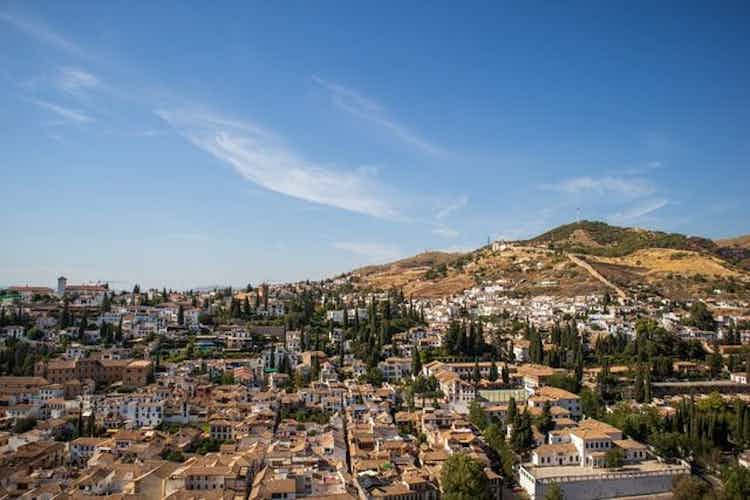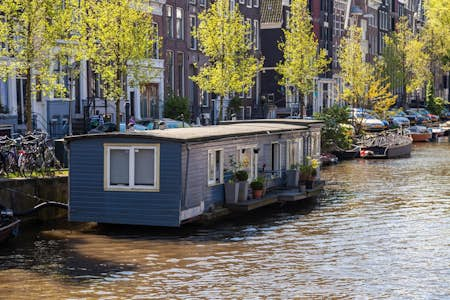It is fair to say that Brexit has caused significant concern and unrest amongst UK expats living in Spain. However, as the future structure of visas and residency continues to emerge, one thing is clear. Even after Brexit, you will still be able to apply for a long-term visa as residents from any non-EU country have done for many years. Furthermore, a reciprocal arrangement between the UK government and the EU means that UK citizens can spend up to 90 days, every 180 days, in Spain visa-free (as part of the Schengen Area).
Consequently, many people believe that the historic insatiable demand for Spanish holiday property will continue. This now leaves the question, what is the best way to invest in property in Spain?
Issues to be aware of when buying Spanish property
Before we look at how you can acquire Spanish properties as a UK citizen, there are several issues to consider.
Currency risk
There is an obvious currency risk when converting pounds sterling into euros and vice versa. However, the short-term currency risk between the purchase of a property and settlement should be negligible. It is more the long-term risk between purchase and potential sale in the future and the conversion of any rental income back into sterling.
Registration requirements
If you are undertaking the purchase of a Spanish property without third-party assistance, you will need to be aware of the registration requirements. These can vary between different areas of Spain, but you will need a NIE number and a Spanish bank account.
Researching properties
In theory, researching a Spanish property and any legal caveats should be reasonably straightforward due to the Internet. However, in reality, you may need to examine issues not directly associated with the property, including local planning restrictions on modifications. While some of the costs associated with property searches may be relatively high, it is worth it to ensure no nasty surprises further down the line.
Unexpected associated costs
Unfortunately, many people automatically assume that the costs associated with property purchases in the UK will be replicated elsewhere, such as Spain. This is not always the case with VAT, stamp duty, notary fees, land register fees and legal fees likely to figure in your purchase contract. Due to the vast UK expat community in Spain, you will find many English property companies with subsidiaries in the region. Take advice!
Understanding your contract
Many people fall into the trap of using the same solicitor as the seller to acquire Spanish property. This is dangerous because it may create a conflict of interest to your detriment, and there may be translation challenges. You must appoint your own solicitors with knowledge of the local property market.
Ongoing costs
Many people will breathe a sigh of relief once they have signed on the dotted line and acquired the deeds to their new Spanish property. However, this is not the end of the story for many people because there may be ongoing costs to consider. For example, there are mortgage costs, utility bills, and home insurance and other issues such as non-resident taxes.
You must do your research not only on the Spanish property market but also on the various associated costs and regulations. As we touched on above, far too many people make the mistake of assuming a like for like scenario with the UK property market. You will find that many overseas property markets have their local anomalies.
We spoke to Miranda John, Director - International Property, at SPF Private Clients, who told us: "Specialist mortgage brokers can arrange International loans which are secured on the property via local Spanish banks but this would only be available for purchases in personal names.
"The mortgage would be in euros, and the maximum loan to value determined by the value and property location. A difference with the UK mortgage market is that the Spanish lenders have no issue if you wish to rent out the property but it is important to verify if there are any local licences required if this is the intention.
"Lending options via Spanish banks are limited as strict affordability criteria and age restrictions apply, so for borrowers in their sixties or older, they may not provide a good solution. As an alternative, it may be possible to raise finance against an individual’s main residence in the UK, where age would not be such a barrier and in this case, the loan would be in sterling.
"In either case, it is essential to take appropriate advice as there are many deciding factors, and a firm that can explore all avenues should help ensure an outcome that is suitable for your personal circumstances."
Crowdfunding Spanish property investment
Over the last decade, we have seen a considerable increase in the number of crowdfunding platforms, many of which focus on the property market. There are numerous benefits to using crowdfunding investment vehicles that apply when acquiring UK property, Spanish property or any other market.
One such company taking the market by storm is BrickStarter, using modern analytical methods to maximise returns. However, before we look at the services offered by BrickStarter, it is worth reminding ourselves of the general advantages of crowdfunding investment.
Low minimum investment
As the whole concept of crowdfunding is bringing together numerous investors, many funds will have a relatively low minimum investment. So whether you are simply putting a toe in the water, as a first-time crowdfunding investor, or looking to diversify your portfolio, this can be very useful.
Diversification
While you need to be careful not to over diversify your portfolio, taking in an array of duplicated costs, it is much easier to diversify as part of more considerable funds. Whether you are looking at different countries, different areas of one country or even different property types, there are numerous options available.
Third-party experience
As we touched on above, there are many issues to consider when acquiring Spanish property which may not necessarily be applicable in the UK. However, those companies looking to attract crowdfunding investment will have property experience, often in niche markets. So, you are also buying into third-party expertise and knowledge, which can be priceless.
Access to non-public deals
The vast amount of crowdfunding raised for property purchases has given many property development companies significant sway in the industry. Consequently, it is not uncommon for crowdfunding specialists to have access to attractive deals before they are in the public domain. This ensures that third-party developers can raise the necessary funds while crowdfunding investors have access to high-quality investment opportunities.
Increase in liquidity
There was a liquidity issue in the early days of crowdfunding, especially for those looking to resell their investment units. However, due to the reasons detailed above, investment in property via crowdfunding vehicles has increased dramatically in recent times. Much of this is down to confidence, and the fact leading property crowdfunding companies live and die by their reputations. Therefore, the degree and quality of due diligence carried out are of the highest order. In simple terms, confidence creates liquidity.
Market awareness
The trend of UK investors looking to acquire Spanish property homes is a perfect example of where market awareness is invaluable. Since Brexit, there has been much concern and confusion regarding changing regulations and costs. Part of the management role of the development companies raising crowdfunding capital is to be aware of specific market issues and manage these. Recently we have seen an increase in the quality of due diligence carried out and the information provided to would-be investors.
We aren’t suggesting that you cannot invest directly in Spanish property. The main concern is that regulatory changes since Brexit have muddied the water a little, and there may be additional changes in the future. If you were to appoint lawyers and representatives to act on your behalf in Spain, this could be expensive. Investing as part of a crowdfunding operation means that the associated costs are apportioned across many different investors, reducing your share of direct costs.
How do crowdfunding companies such as BrickStarter work?
The process is the same across all property crowdfunding companies, and there are no surprises:
- Identify potential property investment
- Open crowdfunding investment opportunity
- Acquire the property
- Improve the property
- Manage the development
- Collect rent
- Potential sale
- Sale proceeds apportioned to investors
You will find that many property developers using crowdfunding investment will also manage the development. In some cases, the management may be outsourced, but investors would not be expected to manage the property themselves.
Using big data analysis
BrickStarter stands out from other property investment vehicles because the company uses big data analysis to identify potential property purchases. The Spanish holiday property market is highly liquid, and there is data going back decades. At a glance, BrickStarter will be able to identify:
- Emerging trends
- Attractive acquisition prices
- High rental areas
- High capital appreciation investments
- Development costs v capital appreciation
- Fair selling prices
The idea is simple; property developments are acquired at attractive prices, redeveloped, and placed onto the rental market. There is a skill in maximising rental income without making a property look expensive, with occupancy rates the key to long-term investment returns. This has a knock-on effect because when the properties are eventually sold, maximum rents and maximum occupancy rates will help bolster the price.
Maximising investment returns
When properties are sold, crowdfunding investors will receive their share of the proceeds, which will supplement the rental income during the period of ownership. The use of big data analysis allows the developer to maximise revenue either via rental income, a quick sale or a mixture of the two. The data analysis programs used today can also identify emerging trends at a relatively early stage. This allows investors to gain exposure at the start of the uptrend.
BrickStarter has a minimum investment of €50, with investment opportunities focused on high yielding property assets such as holiday homes. Investors will receive 5% APR until the properties are fully funded and either earning rental income or sale proceeds.
Does Spanish property still have long-term attractions?
Some experts believe that concern and confusion surrounding Brexit, and changing regulations, have created an exciting investment opportunity in Spanish holiday homes. However, there are also concerns regarding the COVID pandemic and the pace at which individual countries will recover. It is essential to take professional financial advice when looking to acquire any property, with overseas properties having additional issues to consider.
Property crowdfunding projects are more commonplace today than ever before. For many, it is the use of big data analysis which makes BrickStarter stand out from many of its competitors. At a significant profit, the recent sale of a €1.4 million development has rubberstamped this exciting new approach.








